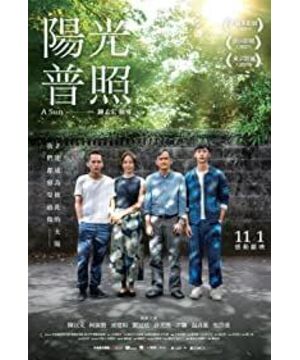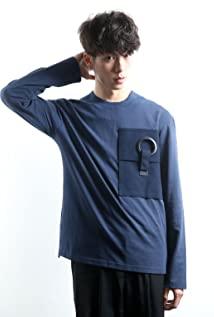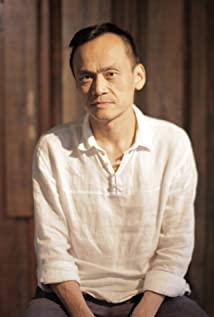Xu Guanghan mentioned the book "The Lonely Game" when he was asked "how to understand Ah Hao" in many interviews in the sunshine and the post-screening QA of the Golden Horse, which naturally became the role I want to know more about Ah Hao. And uncoiled pipes.
Director Zhong Menghong also mentioned this part in Zhang Dachun's radio program, saying that his brother is the most difficult character to tell. People who are too good usually have nothing to happen. When he wanted to explore what he was thinking from the inside, he saw Yuan Zhesheng's "Lonely Game", coupled with the inspiration of co-screenwriter Zhang Yaosheng, has a way to say how to build his inner confusion.
The story that brother Ahao told at the bus station is from "The Lonely Game" //The children were playing hide and seek, Sima Guang insisted that there was another child who was not found, and finally found a water tank. After breaking it with a stone, he found it inside 's child is the naked Sima Guang himself //.
There is a subtitle in the novel "A Fragile Story". The author tells about Sima Guang's smashing of the cylinder, and also about Wu Gang's Fagui and Armstrong's landing on the moon. Then compare these three things to the same process: they hit the tree/moon/water tank, and they "hit themselves" as well.
So I really read the original text and found that the "shadow" it talks about, in addition to the meaning of "hiding", may also have the meaning of "disappearing". Sima Guang in the tank is "hiding", and the process of throwing stones at the tank means that Sima Guang is "disappearing".
"It's not surprising that people naturally like to hide and long to disappear." If you can't even hide, then disappear forever.
The child who tells the story of Sima Guang in the novel regards it as "a story buried in his heart that he can never tell others." Although he claims that he never mentions it to others because it is just an ordinary story, I think it may be because it represents It was the yearning for some kind of complete destruction—that is, death—that he treasured.
So when Ahao tells the story at the bus stop, does it mean that he has made a decision or is planning to "disappear". As a person who "hides" in a place where there is no darkness, in the end, he can only choose to "smash himself" and jump from that window.
Surprisingly, that day, Ah Zhen listened to his story so seriously that she didn't run away when the bus came. Could this be the only listening Ahao has ever received?
In the novel, the story belongs to a child who sits in a quiet home and looks out at the noise. I like to lie at the window and listen to the sound of my father reprimanding the naughty child across the street, and I like to listen to the sound of the uncle next door making his daughter practice the piano, but in his own home, mother and father are always busy on their own, and no one reprimands him or encourages him, so this Children who follow the rules can only arrange everything to happen in their own imagination.
In this way, for Ah Hao in the movie, he also has a quiet home.
No one revolves around him, and he doesn't need others to worry about it. He only has the phrase "grasp the time and control the direction" every year.
"The Lonely Game" is a collection of short stories, followed by a "Father's Profile", which seems to be able to take care of this problem. The father in "Outline" appears in the boy's life as a redemptive character. When he has an idea about saying goodbye to the world, he realizes in time that a man who is not good at words runs to his son's school and buys it from a food stall. steamed dumplings.
There are a lot of signals, and when a person starts thinking about "hitting yourself", there are a lot of signals.
If only people could see it. "Hiding" may not need to be "disappearing".
"It's not surprising that people are born to hide and long to disappear."
View more about A Sun reviews











